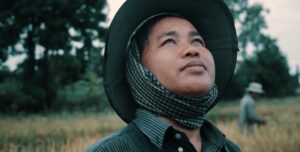Adolescent Girls in India Use Their Voices to Protect Those Most Vulnerable in Their Communities
During a recent staff visit to Odisha, an adolescent client, Akira, shared with our Director of International Programs that she and a friend saw a couple
fighting in the local market. When the husband hit the wife, Akira called the police immediately. When the police came to the market to address the situation, her parents scolded her for getting involved. Akira stood her ground and told her parents that she had to act; otherwise, who would? Akira’s courage inspired her parents, who now realize the importance of speaking up to protect women and children in their communities from vulnerable situations.
Odisha is currently the ninth poorest state in India.16 Here we work near redlight communities riddled with child labor, child marriage, and rampant school dropout rates, making it a hotbed for human trafficking and gender inequality. Still, we’ve seen our adolescent program participants convince their friends’ parents to enroll their daughters in the Nomi Network program so their daughters may learn how to make a living for themselves instead
of marrying them off shortly after puberty. These girls live in patriarchal societies where women are discouraged from speaking up, but they learned
to advocate anyway. When our Director of International Programs met the mothers of the participants, they learned to told her “kuch toh karna hey,”
in Hindi, which means:
For World Child Labor Prohibition Day, the adolescent girls we serve in Odisha wrote a play that showcased their experiences growing up in some
of India’s most economically marginalized regions and their efforts to build community awareness about child rights and accessing government resources. The play introduces four characters: a child aspiring to go to school and become a pilot, a child who works at a chai stand and aspires to
be a professional singer, and two children who are minutes away from being trafficked as they beg at traffic lights to pay off their family’s debt. The play
concludes with an adult that calls an emergency hotline to bring the children at risk of trafficking to safety. This play was a call to action that equipped
their community to stand against trafficking and be more aware of surrounding children’s vulnerabilities. The girls were even featured in the local news.
Help build a world free from human trafficking this holiday season. If you want to help more women and girls from challenged economic backgrounds reach freedom and THRIVE like Sokha, donate today at the button below. Your donation will help survivors, women, and girls throughout India, Cambodia, and Dallas overcome barriers to safe, sustainable employment.
*Name changed to protect privacy




